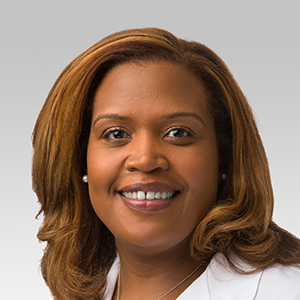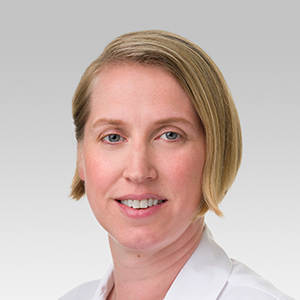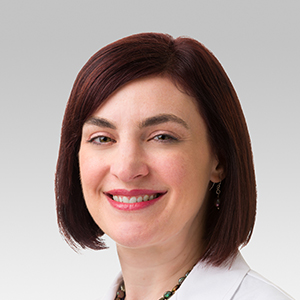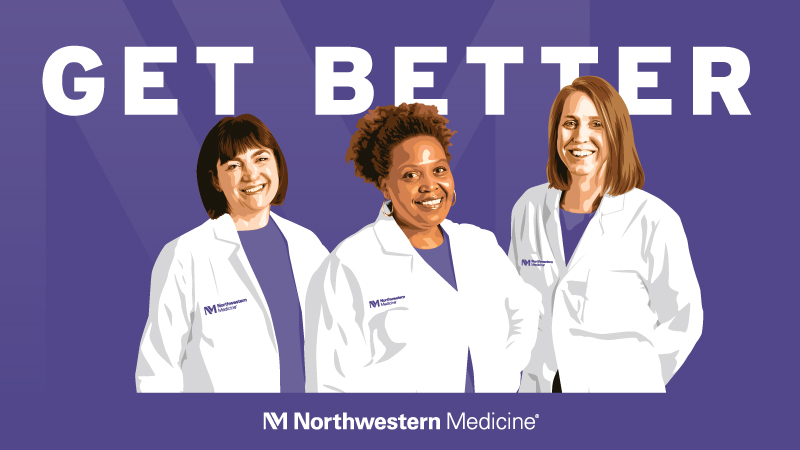SEASON 1 EPISODE 3
Get a Closer Look at Long COVID-19 [Podcast]
Learn From a Patient Still Recovering From COVID-19 One Year Later
Published March 2022
About this Episode
Some COVID-19 survivors have chronic symptoms that last weeks, months or longer. Meet the Northwestern Medicine physicians helping them get better, and hear from a patient still recovering more than one year after clearing the virus from her system.
Featured Guest Experts
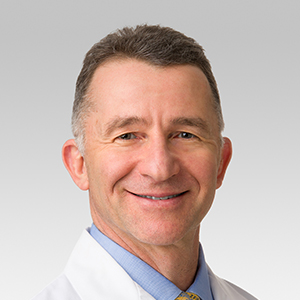
About the Get Better Podcast
Living a healthier life is a journey with no final destination: You can always get better.
Susan Russell, MD, Khalilah Gates, MD, and Michelle Prickett, MD, are three pulmonologists at Northwestern Medicine who help people get better from critical illnesses. They are also lifelong friends and lifelong learners who want to get better from head to toe.
These three physicians will learn alongside you as they interview other Northwestern Medicine experts about health and medicine topics meant to help you achieve better health.
Listen
Disclaimer: This podcast does not substitute for medical advice from a clinician.
Transcript
Russell [00:00:02] Let's get stronger.
Gates [00:00:04] Healthier.
Prickett [00:00:04] Calmer.
Russell [00:00:05] Smarter.
Gates [00:00:06] Better.
Russell [00:00:07] Living a healthier life is a journey, not a destination.
Gates [00:00:10] You can always get better.
Prickett [00:00:12] Let's get better together.
Prickett [00:00:18] Many people have survived COVID-19 but are still dealing with chronic symptoms months later. Hi, I'm Dr. Michelle Prickett today on Get Better. We're talking to 34-year-old Samantha Lewis, a mother and manager of long-term care facilities who acquired COVID in 2020 and is still dealing with the aftermath more than one year later. We'll also talk to Dr. Igor Koralnik, who is the head of the Neuro COVID-19 Clinic within the Northwestern Medicine Comprehensive COVID-19 center. Dr. Koralnik is a practicing neurologist and serves as Chief of Neuro-Infectious Diseases and Global Neurology at Northwestern Medicine. This clinic is a hub of physicians and scientists providing advanced treatment for chronic COVID-19 symptoms and studying the long-term impacts of COVID-19. Welcome, Samantha and Dr. Koralnik.
Koralnik [00:01:07] Thank you for having me.
Lewis [00:01:08] Thank you.
Prickett [00:01:09] I am a pulmonary and critical care doctor, and I've been seeing a very unique aspect of COVID-19. But the episode today, we just want to understand this disease process, what we've learned, how it can affect other organs. Samantha, I understand you tested positive for COVID-19 in October of 2020. Would you mind just giving us a snapshot about how your life was before COVID?
Lewis [00:01:32] So before COVID, I worked a salaried full-time workload of about 55 hours a week and I went to roller derby practice twice a week on skates and then probably went to an open skate every other week and did a workout twice a week. In addition to that, I was very active. I have a daughter on the autism spectrum who does therapies twice a week and also plays hockey. So we had hockey practice twice a week and hockey games on the weekends. We're a very active family. I loved to cook, so I did a lot of spent a lot of time prepping and cooking on the weekends when I had some downtime and we generally stayed as busy as we could. And I would always say that I loved the chaos or the, you know, the fun and excitement of being so busy.
Prickett [00:02:32] And did you have mild symptoms? Did you have actually symptoms of COVID or were you relatively asymptomatic up front?
Lewis [00:02:38] I had mild to moderate symptoms. I did have a 101, was the highest fever that I had. I was coughing. I did have some desaturation of oxygen, but it wasn't enough to be hospitalized. I was able to recover at home. I did have nausea and diarrhea that to this day, still follow me. I am able to treat them at home and we've found things medications that help with the nausea and diarrhea, but they've still not always fully subsided. I still have flare ups that we've now diagnosed as irritable bowel syndrome, post viral IBS, that just sticks with me. While I was in the active acute illness phase, I stayed working as much as I could actually from bed so that if that gives you any indicator of how mild my illness was, I was coughing a little. I was running back and forth to the restroom, but I was still able to order groceries for my living facilities. I was still taking phone calls in between napping. I was still yelling to my daughter, who was doing remote learning from her bedroom. I was doing as much as I could to stay afloat, just not as aware that things were starting to deteriorate.
Prickett [00:03:55] When did you realize that things were still just not right?
Lewis [00:03:58] It was in mid-November when I was trying to return to work. My primary care provider had said some people were just taking longer to recover. So after about three weeks, I was frustrated. But she said to hang in there, so I tried to rest a little longer. But once I was trying to return, I was noticing that at work I would do things like schedule multiple people for the same task, which was odd, and I was not able to remember the right names of utensils when I was cooking at home. So I was doing things like calling a whisk a spatula or not able to remember the steps to a simple recipe that I had made. Time and time again, I was adding the wrong things to box mixes of processed foods. I was driving and I could see that light was red, but my brain wouldn't process that that meant stopping to apply my foot to the brake pedal. I would become disoriented when driving in the snow and have to pull over to get sick. It made me nauseated, dizzy, confused, and then I finally fainted in my kitchen and hit my head from just having a really low blood pressure and really high heart rate. I said something's just not right, and that's what sent me to the ER department at Northwestern.
Prickett [00:05:26] Thank you for sharing that. You mentioned coming to the ER and coming to Northwestern. You are now a patient at the Northwestern Medicine Comprehensive COVID-19 Clinic. Can you tell me a little about how your experience in that clinic has been and how it's changed some of the things that you do to help with your recovery?
Lewis [00:05:41] It's been incredible. It was the point of entry for a lot of amazing services. It was the turning point in my fatigue. It was the turning point in a lot of other functional problems. We were actually able to identify what some of those major problems were and how to adequately treat them. So I now see a cardiologist, a gastroenterologist, I also see a cognitive neurologist, and that led to a lot more of the therapies that I received, which helped resolve some other issues that were a part of the cognitive rehab. So I did occupational therapy, speech therapy. I had my first round of vestibular physical therapy and that triggered some knee swelling, which then led to a psoriatic arthritis diagnosis. I follow up about every three to six months, depending on how my symptoms are at the time of the most current visits, or if there's been any changes to medication symptoms.
Prickett [00:06:47] Dr. Koralnik, I'm going to turn to you and just help us understand how Samantha's story relates to some of the other patients that you've seen at the Northwestern Medicine Neuro COVID-19 clinic.
Koralnik [00:07:00] I'm really glad that you invited Samantha to tell her story in her own words because it really resonates. And this is unfortunately a too frequent story that we hear at the neuro COVID-19 clinic. We started this clinic in May 2020 because we thought that we were going to see a lot of patients after being hospitalized for COVID-19 pneumonia, who would need some neurological care after the fight. But in fact, what we saw mainly coming to the clinic, our young patients like Samantha, who were previously healthy, never had pneumonia or low oxygen levels because of COVID, had just a mild disease that lasted, you know, a week or so and went away, but thereafter developed those lingering and persistent neurologic problem, interspersed with other GI and cardiac and pulmonary problem, which has now been called the long COVID syndrome. And these include the problem with brain fog, decreased attention, memory concentration, headache, dizziness, muscle pain, numbness, tingling, blurry vision ringing in the ears, as well as difficulties working in their current job because of the cognitive dysfunction. And this is something that affects millions of people in the U.S. At this point. We've seen now 1150 patients in the COVID clinic, and 80 percent of those are the non-hospitalized long haulers.
Prickett [00:08:30] Well, thank you for that explanation. What do we know about what causes this? The news is always what I do, ICU ventilators, all of that. There's so much more to this and they may be different pathways which what we're seeing in a critical care setting. Do you mind sharing your thoughts about what the scientific community is feeling that the cause of long COVID may be linked to?
Koralnik [00:08:52] Very interesting questions, and obviously it's different in the patients who had pneumonia. Severe pneumonia intubated in the ICU had multi-organ failure cytokine storm seizures, strokes and other complications of ICU care when they are discharged from the hospital also had encephalopathy. Many of them have difficulties with cognition. But this is probably because of brain damage during the acute phase of the illness, and some of those patients will also develop a long COVID syndrome. But it's very different than the previously healthy ,70 percent female, non-hospitalized long haulers like Samantha that we see in the clinic. In those patients, we are doing research in my lab to try to figure out what is the root cause of the long COVID symptom. We know that women are more likely than men to develop autoimmune disease, such as multiple sclerosis, rheumatoid arthritis or lupus, for example. And we see in the population of the neuro COVID clinic among non-hospitalized patients a higher frequency of autoimmune disease before COVID. 16 percent of the non-hospitalized long haulers coming to the clinic had some sort of autoimmune disease before COVID, and some, in fact, Samantha just told us that she was diagnosed with psoriatic arthritis, which is also an autoimmune condition. So there is probably an autoimmune predisposition for patients to develop long COVID syndrome. It is probably associated with a dysregulation of their immune system. We see that the virus has come and gone, but the T-cell response of the cell, our immune response against the virus has been confused in a sense, and it is possible that those patients develop an autoimmune syndrome, which is part of the long COVID, which we are investigating at this point.
Prickett [00:10:52] Excellent. More to come. But I think the idea of it's a very different entity than what we see in the ICU is is pretty clear. And then the idea of an autoimmune component and immunological condition is clearly what I think we're on the right track and I'm glad there's researchers out there. I'm just a simple ICU doc, so I'm glad there's folks like you out there, and I'm glad that the clinic exists at Northwestern for the patients that we do see. What do you, Dr. Koralnik, think sets the Northwestern Medicine COVID Clinic apart?
Koralnik [00:11:20] We have set up this neurocognitive pipeline that some into went through first when she came to my clinic. She had a full neurological evaluation with myself and the fellow, and then we gave her some standardized cognitive tests called NIH Toolbox, which I perform on an iPad and measure processing speed, attention, executive function and working memory. And based on the large normative population in the U.S., we could tell her that she was performing below average for her age and education. Then she was referred to one of our neurocognitive specialists in the Department of Neurology who did further evaluation. So this is this first screening test in the clinic. Further neurocognitive evaluation in the specialized neurocognitive clinic, followed by a precision cognitive rehab that I think is unique in what we can offer to our patients.
Prickett [00:12:20] Two words that I'm going to pull out and I'm going to bring it over to Samantha, are comprehensive imprecision. The one thing that I have seen is there's a lot of fear and unknown. So how does knowing that you're being treated comprehensively and with precision? Is that something that resonates with you? How do you feel about that? And just how have you felt about kind of your care pathway forward?
Lewis [00:12:41] It's 100 percent accurate. First of all, because the way that they use all of the tools available to be comprehensive is incredible. When I saw the next neurologist, that visit was almost two hours and covered every concern possible, and I had been having some independent eye movement problems as I was falling asleep. Sleep disturbances, a lot of different things that seemed minor or whatever they were at the time. We did all of the different diagnostic things that we needed to do to ensure that this was the main problem here. We did do a driving evaluation to be sure that I was safe to drive. We did do an EEG to be sure that there was no seizure activity. We did do the neuropsychological evaluation to rule out any mental health concerns and to ensure that what we were, what kind of problems we really were looking at from a cognitive perspective. And then we took all of that information to the physiotherapist, to the therapist to really focus in on these different concerns while we were doing rehabilitation activities. And so everything was specifically designed for these individual problems, these individual concerns. That's what made it so successful.
Prickett [00:14:06] There's probably other people listening that have either themselves or a loved one that is experiencing symptoms that may be suggestive of long COVID. What would you recommend to them?
Lewis [00:14:15] The number one thing that I tell people over and over again is that if something doesn't feel right for you and your body, listen to that and be persistent. Always be persistent in advocating for yourself and reach out to your physician to get help you know your body. And you know when something's not right, and I cannot tell you the number of times that I've given out the comprehensive COVID-19 clinic's intake number because they have people that do answer the phone and they do listen to what's going on, and they do tell you, yes, let's do this first intake visit. Let's find out what's going on because they're there. They're here to help you find out what's going on and help you get some relief from these debilitating symptoms.
Prickett [00:15:09] How has this changed your life and your ability to do things?
Lewis [00:15:13] At first, I used to walk with a walker. I was able to do enough therapies and work on balance coordination, work on visual tracking, work on tolerating more physical activity, work on more of the autonomic dysfunction so that my heart rate wasn't accelerating so much, and then I was able to transition to using a cane. I have also eventually transitioned to not using a cane at all. I have had a couple falls later in the day. Since then, sometimes I get a little ahead of myself and I have to remind myself that you do have to still slow down. My pace has slowed. I do work in general at a slower pace. I have to set more boundaries. I have had to learn that I cannot do as much in general as I used to. I have to protect some of that energy because if I spend all of it and the medication will allow me to spend it all, if I spend it all, I will end up almost with a hangover like feeling the next day, which is not, it's not fun. And then I'm a little more prone to agitation or frustration. I do have to cover things up visually that are excessively stimulating. Otherwise, I can get easily dizzy. It was our long journey through being able to get from not being able to stay awake through a whole day. I couldn't get up the stairs by myself to see Dr. Koralnik getting some medication regimes going, getting some more help through the clinic to get to now where I can stay awake almost every day. Once in a while, there are going to be bad days where I maybe stutter or I get lost in the conversation and forget where I was going, or I can't remember a word or two, or I forget to write something down and then I don't remember where it was and or I didn't process it because I didn't use the strategies that I was taught. But as long as I'm using the strategies and as long as I'm using all the tools that I've been given along this way, then recovery has worked for me.
Prickett [00:17:37] This was so enlightening to me, and I hope that those listening will find this as enlightening as well. And if something resonated to know that, you know, this is very common, there's millions of folks out there that may be suffering from long COVID and that there's resources and a support system available. And it sounds like it's just one telephone call away and potentially a telehealth visit to get started.
Koralnik [00:18:02] I want to give a ray of hope to people who listen. People tend to improve over time. There are ups and downs and relapses, but overall people tend to improve and that's what we see by doing the research, you know, in the clinic and publishing papers. There are approximately 75 million people who have survived COVID in the United States today. Approximately one third of them will have some sort of long COVID symptoms. Some may be very mild with just disorder of smell and taste that goes away, but some may be persistent like those of Samantha's with brain fog and cognitive problems that may last more than a year. And so I would encourage them to seek care if they want to come to see us in tele-visit. They just need to have access to a phone or computer to join us. They don't need a physician referral to join us. We also accept to see people who don't have a positive COVID test and they have the same symptom as the long haulers. And why is it the case? Because as you remember, at the beginning of the pandemic, it was difficult to get a nasal swab if you're not hospitalized in the ICU with pneumonia. And the first antibody tests or surgical tests that came on the market were not sensitive enough to pick up antibodies in people who are not severely sick with COVID-19 pneumonia. Therefore, there's a lot of people, probably hundreds of thousands of people, if not more, in the U.S. who got COVID, but could not get the diagnosis of COVID because they either could not be tested on time or because the tests were negative. And those patients, unfortunately, were 70 percent of them are female who but rejected by many medical providers because they didn't have a firm diagnosis of COVID-19. We accept to see them in our clinics since the beginning. Actually, half of the population of the clinic at the beginning were people who tested either negative or could not be tested on time, but had the same exact symptom of a long COVID. And those patients are not diagnosed with the post-viral syndrome, and we treat them just the same as. Those who have a positive diagnosis of COVID-19.
Prickett [00:20:20] I think that's a great point. I was in the ICU for those first COVID patients, so I remember it and was selective and we really did not have had the testing. So that is a really great point to know that that's being recognized and those folks are getting the care that they need and it's not being attributed to something else.
Koralnik [00:20:36] It just takes time. We can help patients symptomatically with their headache. We can help them with their fatigue, we can help them with the pain and we can help them also with the cognitive training that Samantha is doing. And Samantha, when you go back to the roller derby, I want to be cheering you from the sidelines.
Prickett [00:20:57] Thank you, Samantha. Dr. Koralnik for being here with me today. To read Samantha's story and hear more about the Northwestern Medicine Neuro COVID-19 Clinic and Comprehensive COVID-19 Center, visit nm.org/healthbeat.
Russell [00:21:18] Thanks for listening to Get Better.
Gates [00:21:19] We hope you leave this podcast better than when you started.
Prickett [00:21:23] For more information visit nm.org/healthbeat.




